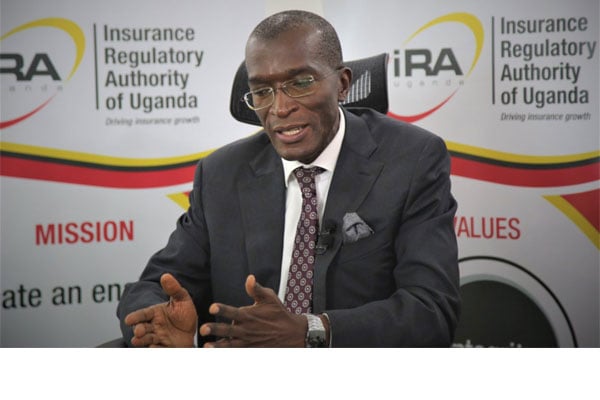Prime
Insurance firms target bigger pie from oil sector

Crude oil containers in Buliisa District. PHOTO/FILE
What you need to know:
Local insurance sector players must up their financial and human resource muscle to take on huge oil and gas risks.
The Insurance Regulatory Authority of Uganda is strengthening the capacity for local insurance firms to meet the growing oil and gas sector demands, Alhaj Kaddunabbi Ibrahim Lubega, the chief executive officer said.
Capacity development is at the heart of this if the insurance sector is to demand a bigger share of the pie.
“The Authority has ensured that a portion of the premiums generated from the oil and gas risks is set aside to train the industry on oil and gas risks,” he said.
He was responding to queries regarding foreign insurance firms stifling the efforts of local insurers to gain from the country’s national content provisions.
In their 2022 annual report, Uganda Insurers Association under the Insurance Consortium for Oil and Gas (ICOGU), an umbrella organisation for 19 local insurance firms, reported that premiums worth $9.4 million had been underwritten for the Tilenga project which is operated by Total E&P Uganda (TEPU).
The consortium has also underwritten policies totaling to $2 million for the East African Crude Oil Pipeline and $3.2 million for Kingfisher project – operated by CNOOC Uganda Limited.
However, speaking during a news conference organised by the Uganda Chamber of Mines and Petroleum (UCMP), Jonan Kisakye, the chief executive officer for Uganda Insurers Association said, “It has not been a bed of roses because oil companies have different interpretations of the laws and contracts.”
“Local content expectations have also been an issue,” he added, explaining that when oil companies were importing the rigs into the country – which are being used in the early stages of oil drilling in the Albertine Graben- local insurers did not align with oil companies to the Insurance Act that requires taking on local marine cover.
“This led to the loss of income on our side,” he said, “But this is just the production stage. We shall align as we go forward.”
On the other hand, Kisakye agrees that the local insurance sector players must up their financial and human resource muscle to take on huge oil and gas risks.
For instance, he said, the current market capacity for local insurers under non-life is below $1.5b yet infrastructure investment in the oil and gas sector that must be insured has over the years grown to approximately $50b.
Kisakye said that through reinsurance, local firms can underwrite more premiums as they grow their financial capabilities.
“We need to give confidence to sector players that insurers are able to take on huge risks locally,” he said.
The insurance industry needs skills and training in this high-end engineering fete. For capacity, Kaddunabbi said, insurance relies on layers of protection, first is the retention, which is kept locally here, then the reinsurance - that aids the sector tap into the capital and expertise of reinsurers who are mostly local to the African continent.
Going forward Kaddunabbi said, “Our insurers have combined their capacity as ICOGU to retain a portion of this risk as we understudy and get to appreciate the intricacies of the business. With time, we shall see more risk being retained locally.”
On his part, Kisakye said there will be continuous engagement with international insurers on favourable terms in line with the intricacies of insurance requirements and the need to align with regulatory frameworks.
He said ICOGU has ample opportunities to expand its services, promote local content development, and contribute to the overall advancement of Uganda’s oil and gas sector.
Individual insurance companies see opportunities for the oil and gas sector going forward.
In an interview, Minet Uganda Insurance Brokers Limited's chief executive officer, Mr Edward Nambafu sees several opportunities in the sector due to Africa's abundant natural resources.
“The demand for these resources remains high, attracting foreign investments, including China… Additionally, there is a growing emphasis on environmental, social, and governance strategies, which open up opportunities for insurance solutions related to sustainability and responsible resource extraction.”
As the sector evolves, there will be an increasing need for comprehensive insurance coverage according to Mr Nambafu.
On the other hand, Mr Nambafu said oil and gas is subject to various risks and uncertainties, including legislative changes, environmental impacts, political situations, and infrastructure challenges.
To address these challenges, he said that Minet is well-prepared to provide risk management solutions that are adaptable and responsive to changing circumstances.
“Our experience in other markets and our global reach allow us to tap into external capacity and expertise when needed, ensuring that we can adequately cover emerging risks,” he added.




